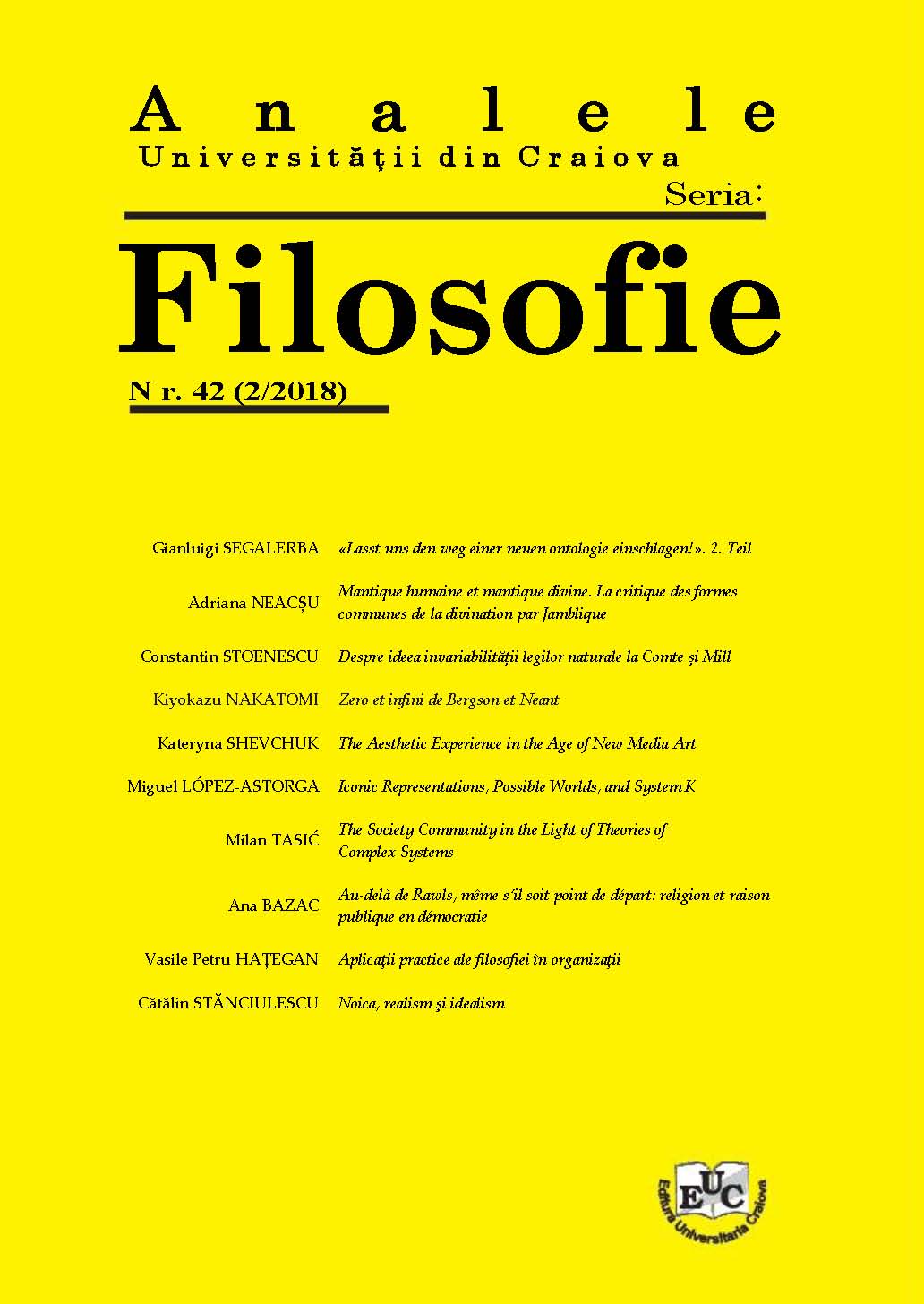«LASST UNS DEN WEG EINER NEUEN ONTOLOGIE EINSCHLAGEN!»
“LET’S TAKE THE WAY OF A NEW ONTOLOGY!” (SECOND PART)
Author(s): Gianluigi SEGALERBASubject(s): Metaphysics, Ancient Philosphy, Ontology
Published by: Editura Universitaria Craiova
Keywords: Idea; substance; genus; species; difference; contrariety; universal; ontological features; Aristotle; Plato; Metaphysics Zeta 14; Metaphysics Iota 10; Metaphysics Lambda 5; De Caelo I 9; essence;
Summary/Abstract: In this second part of my analysis dedicated to Aristotle’s way towards a new ontology, I shall mainly deal with the following subjects: - aspects of Aristotle’s criticism of ideas; - Aristotle construction of a new ontological scheme based on the two realms of reality represented, respectively, by properties in and of themselves and by concretized properties (i.e., individualized properties). As regards Aristotle’s criticism of ideas, I principally concentrate my attention on the incompatibility between idea and genus: this part of the analysis focuses on the chapter Metaphysics Zeta 14 and on a passage taken from Topics Zeta 6. Through these texts it is shown that the correct features of the genus are incompatible with the features attributed to ideas in the ontological system maintaining the existence of ideas: no genus can be considered as being separated, as being a substance and as being numerically one. Further elements of Aristotle’s criticism of ideas are taken from the chapter Metaphysics Iota 10, which exposes an interesting attack on ideas based on the mutual foreignness – as regards the genus they belong to – between ideas, on the one hand, and entities of the concrete reality, on the other hand: this reciprocal foreignness originates from the properties respectively of being-perishable, assigned to ideas, and of being-imperishable, assigned to the entities of the concrete reality. Ideas and entities of the perishable reality, which, in the opinion of those who plead for the existence of ideas, should have common properties, do not have, actually, anything in common. Aristotle’s construction of an ontology based on different realms of reality constitutes the second subject of my analysis: in my opinion, Aristotle differentiates in the passages I analyse between the following two realms of reality: - properties in and of themselves, which do not exist in the realm of instantiations, but which can be individualized into the instantiations (the realm which properties in and of themselves belong to, is the realm constituted by structures, properties and laws of the reality); - concretized properties, represented by individual entities, which are, constitutively, instantiations of properties in and of themselves (the realm which concretized properties belong to, is the realm constituted by the concretizations of structures, of properties and of laws of the reality). This differentiation between these two realms is developed in many passages of Aristotle’s works; in this part of my analysis I take into consideration passages from Metaphysics Lambda 5, from De Caelo I 9 and from Metaphysics Zeta 15.
Journal: ANALELE UNIVERSITĂȚII DIN CRAIOVA. SERIA FILOSOFIE
- Issue Year: 2/2018
- Issue No: 42
- Page Range: 5-48
- Page Count: 44
- Language: German

